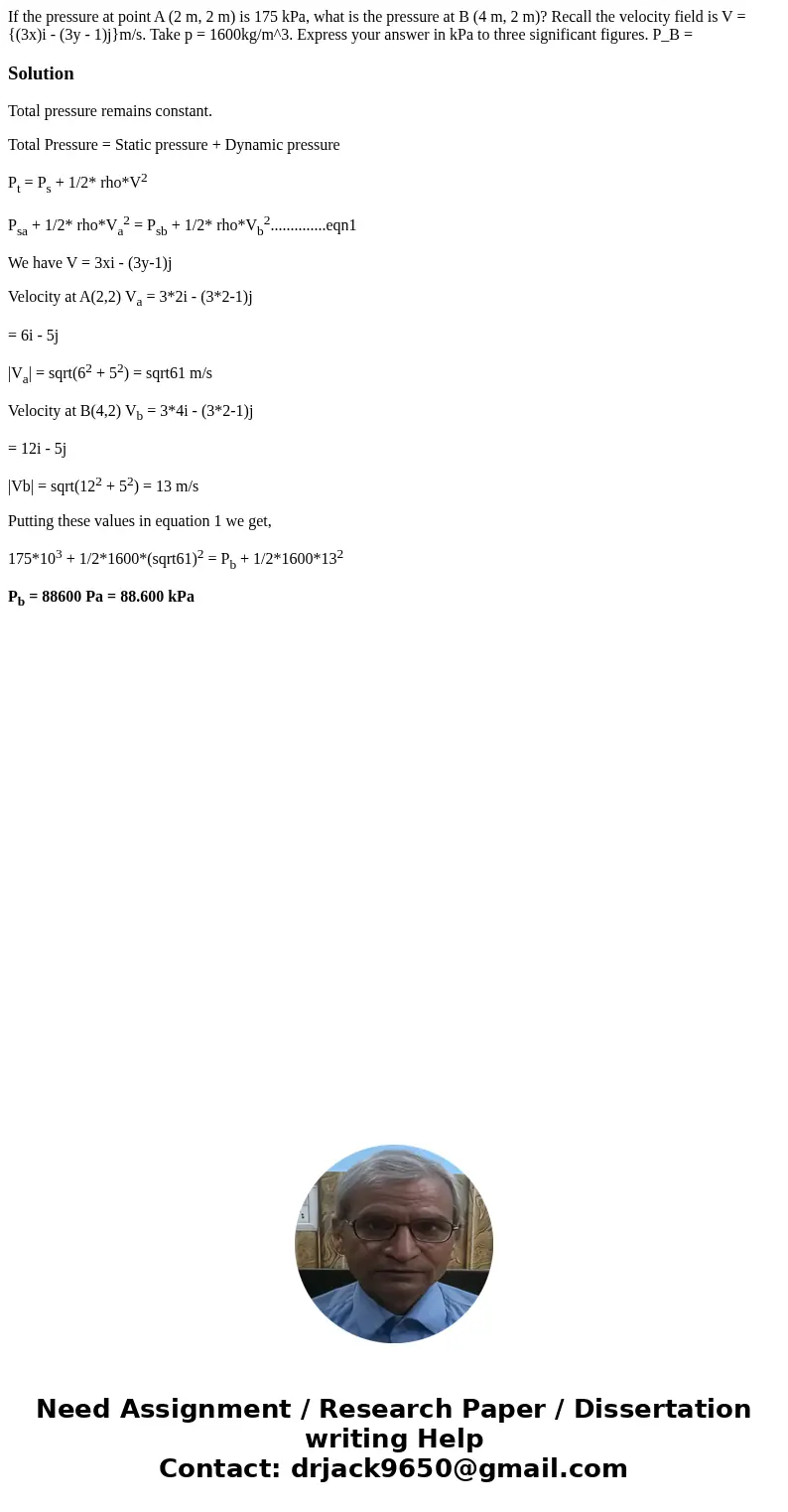If the pressure at point A 2 m 2 m is 175 kPa what is the pr
If the pressure at point A (2 m, 2 m) is 175 kPa, what is the pressure at B (4 m, 2 m)? Recall the velocity field is V = {(3x)i - (3y - 1)j}m/s. Take p = 1600kg/m^3. Express your answer in kPa to three significant figures. P_B = 
Solution
Total pressure remains constant.
Total Pressure = Static pressure + Dynamic pressure
Pt = Ps + 1/2* rho*V2
Psa + 1/2* rho*Va2 = Psb + 1/2* rho*Vb2..............eqn1
We have V = 3xi - (3y-1)j
Velocity at A(2,2) Va = 3*2i - (3*2-1)j
= 6i - 5j
|Va| = sqrt(62 + 52) = sqrt61 m/s
Velocity at B(4,2) Vb = 3*4i - (3*2-1)j
= 12i - 5j
|Vb| = sqrt(122 + 52) = 13 m/s
Putting these values in equation 1 we get,
175*103 + 1/2*1600*(sqrt61)2 = Pb + 1/2*1600*132
Pb = 88600 Pa = 88.600 kPa

 Homework Sourse
Homework Sourse